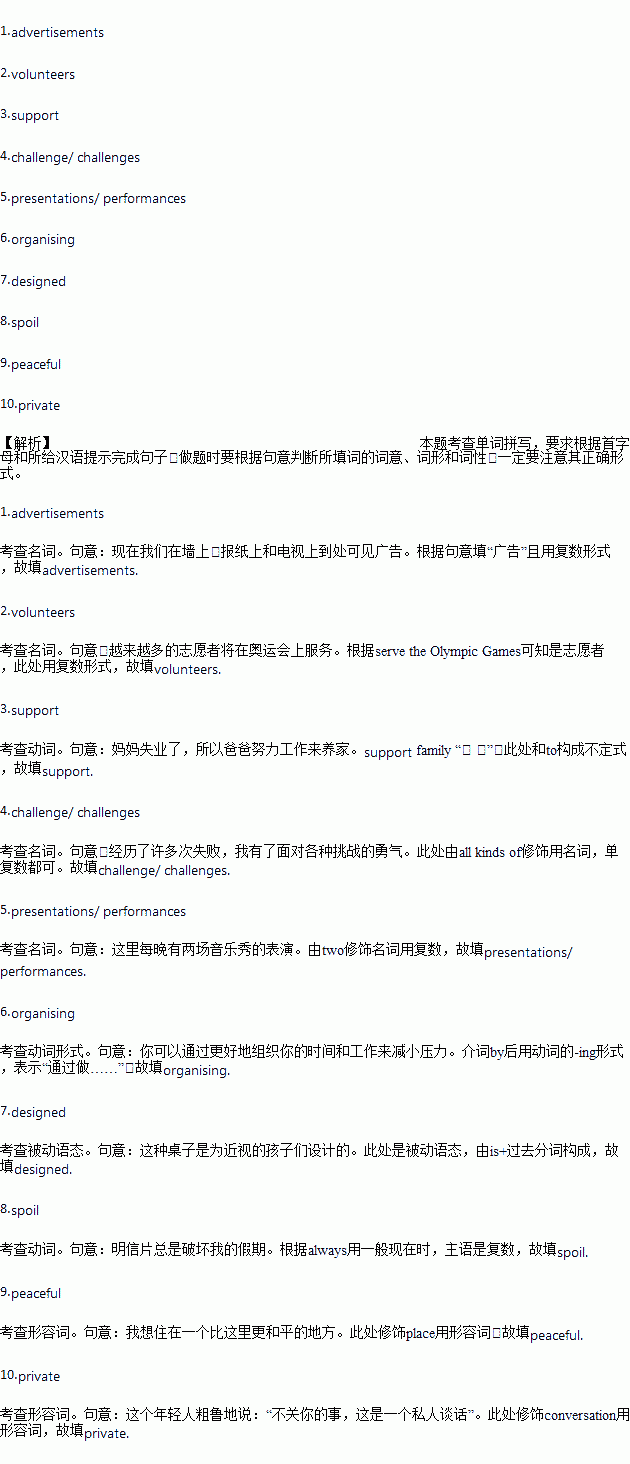题目内容
根据下列各句句意及所给单词的首字母填或汉语提示。写出该单词的正确形式。
1.Nowadays we can see a______________ everywhere, on the walls, in the newspapers and on TV.
2.More and more v___________ will serve the Olympic Games.
3.My mother is our of work, so my father works hard to s_________ our family.
4.Having experienced many failures, I have the courage to meet all kinds of ____________ (挑战).
5.There are two _________________________ (表演) of the musical show each night.
6.You can reduce your stress by ____________ (组织)your work and time better.
7.This kind of desk is ____________ (设计) for the children who are shortsighted.
8.Postcards always____________(搅得不安)my holidays. (新概念2)
9.I want to live in a place more ____________ (和平) than here.
10.“It’s none of your business,” the young man said rudely. “This is a____________ (私人的) conversation!” (新概念2)


 pany is advised to seize the new digital opportunities.
pany is advised to seize the new digital opportunities. d C. hopeless D. freezing
d C. hopeless D. freezing